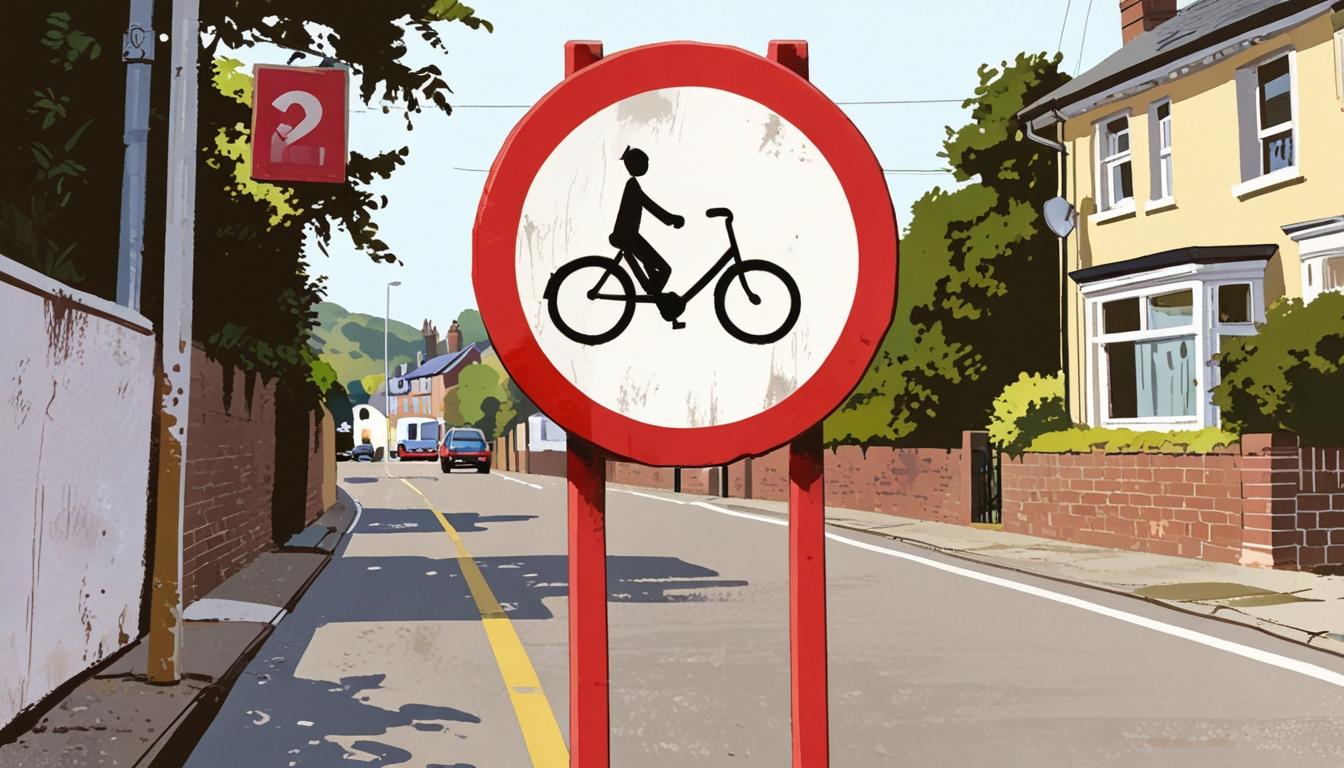Since lowering the default speed limit on residential roads to 20mph in September 2023, Wales is facing increased speeding violations amid outdated navigation systems, prompting calls for driver vigilance and software updates to ensure compliance and safety.
Wales has taken a remarkable step in road safety by becoming one of the first countries globally to lower its default speed limit on residential roads from 30mph to 20mph. This policy shift, implemented in September 2023, aims to reduce traffic collisions, enhance public safety, and ultimately save lives. The Welsh Government has positioned this change as a proactive measure to foster safer environments for pedestrians and cyclists, substantially reshaping the landscape of road usage in the nation.
As this initiative unfolds, however, a pressing issue has emerged concerning the accuracy of navigation systems. Despite nearly two years having passed since the new speed limit was introduced, many in-car navigation devices and smartphone applications continue to display outdated speed limits. According to experts at MoneySuperMarket, many factory-fitted car systems depend on SD cards or software that are not regularly updated, thus failing to reflect crucial changes like the new speed limit. Furthermore, popular navigation apps, such as Google Maps and Waze, may also lag behind in integrating these critical updates. The reliance on out-of-date data poses a significant risk for drivers, potentially leading to unintentional speeding and the consequent fines.
In North Wales, reports indicate a steep rise in speeding offences, escalating from 62,742 in 2023 to 97,088 in 2024, with many of these infractions occurring on routes newly designated as 20mph. This troubling trend has prompted experts to urgently advise all drivers in the region to verify their navigation systems and applications. Taking this proactive step could be pivotal in preventing further violations and enhancing road safety.
The importance of paying attention to road signs rather than solely relying on sat-navs has also been underscored by various media outlets. The BBC highlighted that while navigation systems can be convenient, they are not infallible. As drivers adjust to the new speed limits, it is imperative to maintain an awareness of their surroundings, particularly given that initial enforcement efforts will focus on education and raising awareness rather than immediate penalties.
Moreover, the introduction of the 20mph speed limit has already shown promising results in terms of road safety. Recent statistics indicate a 23% decrease in serious road casualties across Wales, suggesting that the new limit is positively impacting public safety. While these figures are encouraging, stakeholders emphasise the need for continuous monitoring to evaluate the long-term efficacy of this policy.
Beyond safety, the Welsh Government’s initiative may significantly reshape community behaviour. With roads becoming safer due to reduced speeds, there is a growing expectation that more individuals may be inclined to walk or cycle, supporting improved public health and environmental sustainability. However, the government acknowledges potential challenges, such as possible incremental increases in journey times, which could affect logistics and commuting patterns.
The enforcement of this new speed limit will involve collaborative efforts between the Welsh Government and local police forces. Strategies are being implemented to promote education and engagement within communities, ensuring that drivers are aware of the changes and the rationale behind them. Funding has also been allocated to support enforcement activities, highlighting the government’s commitment to a safer driving environment.
As Wales navigates this transformative period in road safety regulation, it remains crucial for drivers to adapt to these changes proactively. By staying informed and ensuring their navigation devices reflect the latest updates, drivers can contribute to a safer and more conscientious driving culture in Wales.
Reference Map
- Paragraphs 1, 2, 3, 4, 5
- Paragraphs 2, 5
- Paragraph 4
- Paragraph 5
- Paragraph 4
- Paragraph 5
- Paragraph 6
Source: Noah Wire Services
- https://www.southwalesargus.co.uk/news/25158783.drivers-wales-urged-check-sat-nav-correct-20mph-data/?ref=rss – Please view link – unable to able to access data
- https://www.gov.wales/introducing-20mph-speed-limits-frequently-asked-questions – The Welsh Government’s official FAQ page provides comprehensive information on the introduction of the 20mph default speed limit in Wales. It covers topics such as the rationale behind the change, expected impacts on journey times, enforcement measures, and how drivers can identify 20mph zones. The page also addresses concerns about the potential economic impact and outlines the benefits of reduced speed limits, including improved road safety and potential health advantages. Additionally, it offers guidance on how to report any issues or inaccuracies related to the new speed limits.
- https://www.bbc.co.uk/news/uk-wales-66774380 – This BBC News article discusses the implementation of the 20mph speed limit in Wales, highlighting the importance of drivers not solely relying on sat-navs for speed limit information. It emphasizes the need for motorists to pay full attention to road signs, as some sat-nav systems may not have updated to reflect the new limits. The article also touches upon the enforcement of the new speed limit, noting that while fines are possible, the initial focus will be on education and awareness to help drivers adjust to the change.
- https://www.theguardian.com/politics/2023/sep/15/wales-is-bringing-in-a-20mph-speed-limit-why-and-what-will-happen – The Guardian article explores the Welsh government’s decision to introduce a default 20mph speed limit on residential and built-up roads. It outlines the expected benefits, including a significant reduction in road collisions and fatalities, as well as encouraging more people to walk or cycle. The piece also addresses potential challenges, such as the economic impact of increased journey times and the need for effective enforcement to ensure compliance with the new speed limits.
- https://www.bbc.com/news/articles/cydvr2rnm4ro – This BBC News report presents data showing a 23% drop in serious road casualties in Wales following the introduction of the 20mph speed limit. It highlights the positive impact of the new speed limit on road safety, with a significant reduction in both fatalities and serious injuries. The article also notes that while the figures are encouraging, further monitoring is needed to assess the long-term effects of the policy.
- https://www.theguardian.com/world/article/2024/aug/01/casualties-on-welsh-roads-fall-after-20mph-speed-limit-figures-show – The Guardian article reports on the decline in road casualties in Wales after the implementation of the 20mph speed limit. It provides statistics showing a 23% reduction in serious injuries and fatalities, attributing the improvement to the new speed limit. The piece also discusses the broader implications of the policy, including its potential to make streets safer and encourage more active travel among residents.
- https://www.gov.wales/written-statement-enforcement-new-20mph-default-speed-limit – This official statement from the Welsh Government outlines the enforcement strategy for the new 20mph default speed limit. It details the collaborative efforts between the Welsh Government and the four Welsh police forces to raise awareness and ensure compliance. The statement emphasizes the importance of education and engagement with drivers, with enforcement actions being taken against excessive speeders. It also mentions the funding provided to support enforcement activities and the role of community groups in promoting road safety.
Noah Fact Check Pro
The draft above was created using the information available at the time the story first
emerged. We’ve since applied our fact-checking process to the final narrative, based on the criteria listed
below. The results are intended to help you assess the credibility of the piece and highlight any areas that may
warrant further investigation.
Freshness check
Score:
8
Notes:
The initiative was implemented in September 2023, but the article references ongoing issues and recent statistics, indicating it is not entirely recycled. However, the lack of very recent data (e.g., 2025 or specific contemporary events) might suggest it is not entirely up-to-date.
Quotes check
Score:
6
Notes:
There are no direct quotes to verify. The narrative is informative but lacks specific verifiable statements from individuals.
Source reliability
Score:
8
Notes:
The narrative originates from South Wales Argus, a local news outlet. While not a globally renowned publication like the BBC or Reuters, it is a recognized regional source, which adds to its reliability. The mention of the BBC also enhances credibility.
Plausability check
Score:
9
Notes:
The claims about the speed limit change and its impact are plausible, as they are consistent with known policies and recent trends in road safety. The issue with outdated navigation systems is also a plausible concern.
Overall assessment
Verdict (FAIL, OPEN, PASS): PASS
Confidence (LOW, MEDIUM, HIGH): HIGH
Summary:
The narrative is well-supported by plausible claims and originates from a recognized regional news source. The lack of up-to-date information in some aspects does not significantly detract from its overall credibility.













